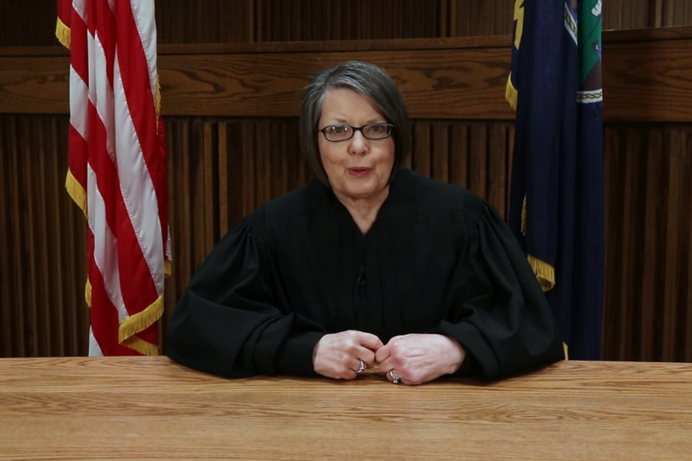
Less revenue is hurting recruitment, retention of judges, says Chief Justice Marla Luckert
By NOAH TABORDA
Kansas Reflector
In the annual State of the Judiciary address Wednesday, the leading judge of the Kansas Supreme Court said the focus of the judicial branch in 2020 was largely on weathering the financial and physical realities of the COVID-19 pandemic.
The judiciary worked toward maximizing access to fair justice and harnessing new technologies to overcome the challenges presented by the pandemic, said Chief Justice Marla Luckert.
Due to the efforts of court staff, she said essential court services never ceased in 2020.
“I am proud to say that Kansas judicial branch employees and judges reacted by harnessing bold ideas, implementing thoughtful solutions, and adopting a spirit of perseverance that moved our judiciary forward. Many innovations provided Kansans with easier means for accessing courts,” she said.
Unlike years past, Luckert delivered the address to the governor and all members of the state Legislature virtually to maintain proper COVID-19 protocol. She emphasized successes in using technology to overcome social distancing barriers, but highlighted a need for legislation extending the court’s authority to use such technology and for increased pay.
A bill passed through both chambers and approved by the governor in March 2020, gave Luckert the authority in any state of emergency to extend or suspend statutory deadlines or authorize video conferencing in any court proceeding when necessary to ensure the health and safety of all.
This allowed appellate courts to conduct all proceedings virtually for the past 10 months. District courts have conducted tens of thousands of videoconference hearings, Luckert said.
“The judges and employees of the Kansas judicial branch channeled the drive to care for neighbors into virtual court hearings, remote working environments, carefully crafted plans for making court offices and courtrooms safer and new strategies for safeguarding the health of all who enter Kansas courthouses,” she said.
Luckert said a record amount of grant funding received by the judicial branch also went toward technological improvements, including an online service that allows victims of abuse to seek protection orders and a way to apply for a marriage license without visiting a courthouse.
However, the legislation allowing some of the technological advances is set to expire March 31, Luckert said. She urged legislators to extend the provisions.
Luckert also called for a pay increase for judges in Kansas to help fill vacancies. She said a 16% decrease in revenue from docket fees led to a hiring freeze in the judicial branch. Now, 11% of branch vacancies remain unfilled.
According to a July 2020 judicial salary survey conducted by the National Center for State Courts, Kansas district judge pay ranks 48 out of 50 states in both actual pay and when adjusted for cost of living.
“To encourage well qualified Kansans to apply to become judges, Kansas must offer salaries that align with the high level of responsibility of the position,” Luckert said. “Adequate salaries are necessary to attract and retain the quality of judges and employees Kansans expect and deserve.”






